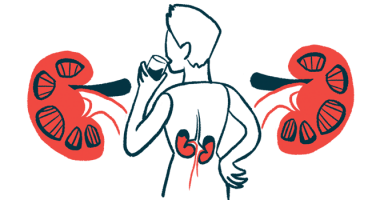PAH Drug, Riociguat, Found Not to Alter the Effectiveness of Oral Contraceptives

Riociguat treatment administered at steady state (2.5 mg, three times a day) to women with pulmonary arterial hypertension (PAH) did not alter the effectiveness of oral contraceptives or make their use unsafe, researchers reported. The study, “Pharmacokinetic interaction study between riociguat and the combined oral contraceptives levonorgestrel and ethinylestradiol in healthy postmenopausal women,” was published in the journal Pulmonary Circulation.
Women with PAH are advised to avoid having children due to the high mortality rate associated with pregnancy in this condition. Since oral contraceptives are the most common drugs used to prevent pregnancy, it is important to understand how they interact with a drug used to treat PAH.
Riociguat, belonging to the soluble guanylate cyclase (sGC) stimulator class of therapeutics, is an approved therapy for PAH and inoperable/persistent or recurrent chronic thromboembolic pulmonary hypertension (CTEPH).
Researchers performed a pharmacokinetic drug interaction study to determine the effects of riociguat on plasma concentrations of the synthetic hormones used in a number of birth control methods, specifically, levonorgestrel and ethinylestradiol. These hormones are combined and sold as the oral contraceptive Microgynon by Bayer Pharma. The team tested riociguat effects in a cohort of healthy postmenopausal women.
Participants were randomized to receive either treatment A followed by treatment B, or treatment B followed by treatment A. Treatment A consisted in a single oral tablet of levonorgestrel-ethinylestradiol (0.03 mg ethinylestradiol and 0.15 mg levonorgestrel) given in the fasting state; in treatment B, subjects received 2.5 mg riociguat 3 times a day, during 12 days. On the eighth day, subjects also received a single oral tablet of levonorgestrel-ethinylestradiol.
Researchers observed that the riociguat maximum recommended dose of 2.5 mg three times a day had no effect in the exposure to a combined oral contraceptive containing levonorgestrel and ethinylestradiol, when compared to the levels of the oral contraceptive administered alone. When levonorgestrel-ethinylestradiol was co-administered with riociguat, there was a 20% increase in plasma maximum concentration of ethinylestradiol, when compared with levonorgestrel-ethinylestradiol alone. This, however, is not expected to change contraceptive efficacy or to require any dose adjustment for ethinylestradiol.
Results suggested that riociguat at steady state has no effect in exposure to levonorgestrel or ethinylestradiol when compared to oral contraceptives administered alone. The combined regimen was also found to be safe and well-tolerated.







